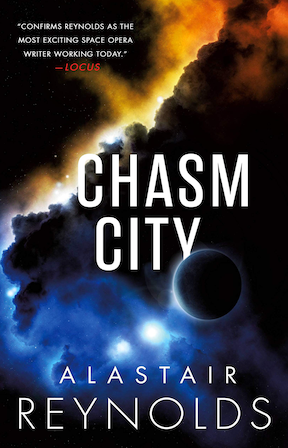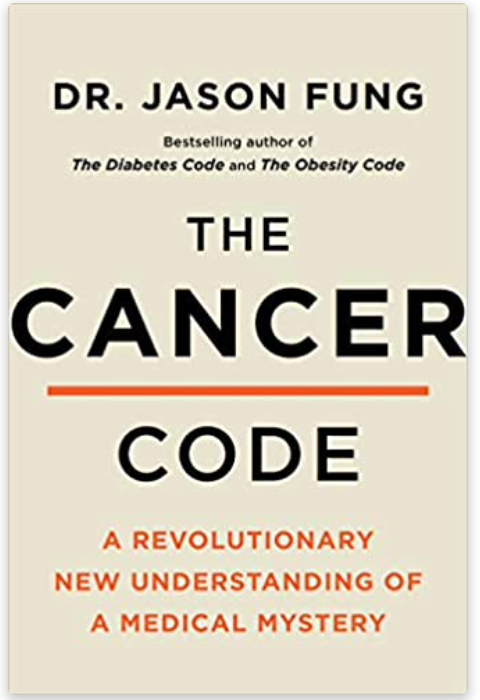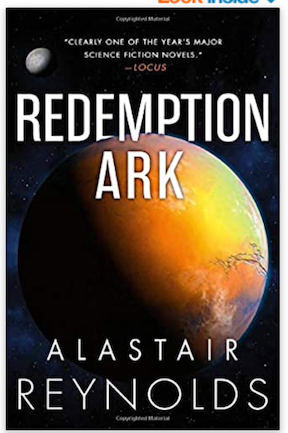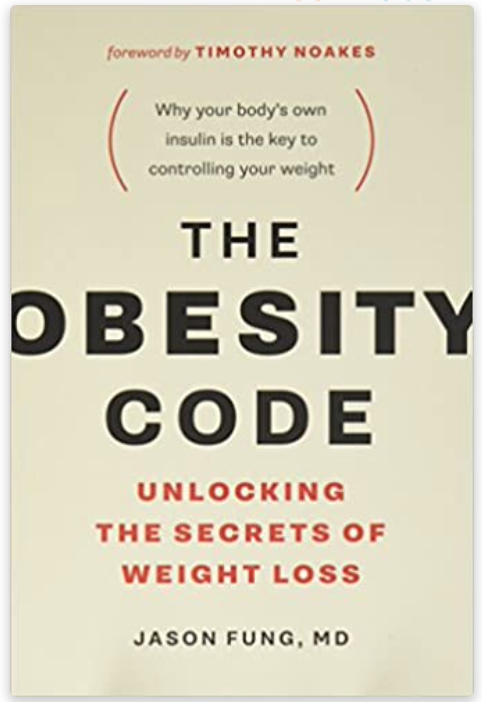What are you reading now?
-
It is long though, look at my current page number and progress through the book:

But that's page 701 and the Nazis haven't even invaded Poland yet. It really does give a thorough cover to the rise of Hitler and his party.
-
I've had this book in PB for very many years. Haven't redd it. Books come and go, that one always remains, getting more and more tattered as time passes. Someday.
Thanks for your comment. Maybe someday will come a bit sooner now.
ETA: Another book that has that same easy style that absorbs you is The Russians by Hedrick Smith. He wrote it based on his experiences as the Moscow NYT Bureau Chief. IIRC, the emphasis was very much on everyday life in Russia, and not so much on politics. (I could be wrong about that, though.)
-
@george-k said in What are you reading now?:
I'm going to go thru the "Revelation Space" universe in chronological (not published) order. The short stories and novellas have given enough background to make it understandable.
Yeah. Reading them in chronological order is definitely worth the effort. Reynold's world-building is great. He has a very unique style - sometimes first-person, sometimes third-person.
Just started this the other day:

"The once-utopian Chasm City -- a domed human settlement on an otherwise inhospitable planet -- has been overrun by a virus known as the Melding Plague, capable of infecting any body, organic or computerized. Now, with the entire city corrupted -- from the people to the very buildings they inhabit -- only the most wretched sort of existence remains. For security operative Tanner Mirabel, it is the landscape of nightmares through which he searches for a lowlife postmortal killer. But the stakes are raised when his search brings him face to face with a centuries-old atrocity that history would rather forget."
@george-k said in What are you reading now?:
Yeah. Reading them in chronological order is definitely worth the effort. Reynold's world-building is great. He has a very unique style - sometimes first-person, sometimes third-person.
Just started this the other day:

Finishing this up this week. It's quite a ride.
Reynolds' books are like a jigsaw puzzle. You really don't know what the hell is going on until the end.
Sort of reminds me of "Salem's Lot." There are so many things, just hung out there, and then, WHAM!, they all come together. King seems to do it better, but these stories are pretty good as well, even if it takes longer to get them to "dovetail" together.
I'm gonna put Reynolds' stuff aside for a while, but I'm looking forward to getting into his stuff in the near future.
Considering getting back to the "Dune" universe with Brian Herbert's "Sisterhood of Dune."
@LuFins-Dad, have you read this?
-
@george-k said in What are you reading now?:
Yeah. Reading them in chronological order is definitely worth the effort. Reynold's world-building is great. He has a very unique style - sometimes first-person, sometimes third-person.
Just started this the other day:

Finishing this up this week. It's quite a ride.
Reynolds' books are like a jigsaw puzzle. You really don't know what the hell is going on until the end.
Sort of reminds me of "Salem's Lot." There are so many things, just hung out there, and then, WHAM!, they all come together. King seems to do it better, but these stories are pretty good as well, even if it takes longer to get them to "dovetail" together.
I'm gonna put Reynolds' stuff aside for a while, but I'm looking forward to getting into his stuff in the near future.
Considering getting back to the "Dune" universe with Brian Herbert's "Sisterhood of Dune."
@LuFins-Dad, have you read this?
@george-k said in What are you reading now?:
@george-k said in What are you reading now?:
Yeah. Reading them in chronological order is definitely worth the effort. Reynold's world-building is great. He has a very unique style - sometimes first-person, sometimes third-person.
Just started this the other day:

Finishing this up this week. It's quite a ride.
Reynolds' books are like a jigsaw puzzle. You really don't know what the hell is going on until the end.
Sort of reminds me of "Salem's Lot." There are so many things, just hung out there, and then, WHAM!, they all come together. King seems to do it better, but these stories are pretty good as well, even if it takes longer to get them to "dovetail" together.
I'm gonna put Reynolds' stuff aside for a while, but I'm looking forward to getting into his stuff in the near future.
Considering getting back to the "Dune" universe with Brian Herbert's "Sisterhood of Dune."
@LuFins-Dad, have you read this?
Not yet.
-
I finished Fung's book over the weekend. Totally fascinating reading. There's so much physiology involved, and he explains it so it's really simple to follow.
Bottom line: Your body has a "set point" for weight. That is set by the hypothalamus, and it can be modified by insulin. Like any other substance, your body becomes accustomed to a level of stimulation (think cocaine, narcotics) and to get the same effect, you need more and more. Insulin is the same. To get the same ability of moving glucose in the cells, you need more and more insulin, if your insulin levels are consistently high: Insulin resistance. As the required level of insulin climbs, the set point goes up as well. This doesn't happen overnight, it happens over years and years.
So, how to keep insulin down? Well, for one thing, don't eat! Eating stimulates insulin release, and some foods (sugars and some carbs) are notorious for causing a spike in insulin. Because it's a "spike" in satiety (these foods are quickly absorbed) you get hungry again and you eat again. A couple of cans of soda and a large steak may have the same number of calories, but which one keeps you satisfied longer? Duh...
He talks about how we transitioned from 3 meals a day to "grazing." Grazing doesn't allow insulin levels to fall, and the "set point" keeps going up and up. The importance of the set point can't be overstated. For example, think of a lean actor who needs to put on 30 lb for a role. His set point is at, say 180lb. He pigs out, balloons up to 210 lb for the movie. However, his set point is still at 180. After the movie is done, he can get back to 180 really quickly, and easily. It's the chronic, insidious rise of the set point that's the culprit.
Ghrelin is a hormone secreted by the gut. It's the "hunger" hormone. It spikes three times a day (guess what those times are) and when it does, you get hungry. If you get past the spike, however, you'll find that, in a couple of hours, you're not hungry any more. Those of us who have skipped breakfast or lunch find that a common occurrence. You want to eat a nice lunch, but you're busy at work. Suddenly, it's 3 pm and you've not eaten, and...you're not hungry.
Big discussion of artificial sweeteners - all of them cause an spike in insulin (bad thing).
Big discussion of rice. The Chinese consume more white rice than any other group, and until the 1970s, there was little obesity (though Mao may have had something to do with that, LOL). The incidence of type II diabetes was about 1.3%. As the nation became more industrialized, and sugar became a staple of their diet, the incidence of diabetes skyrocketed to 13.6%, higher than the US (at 13.3%).
It's an easy quick read and doesn't get too technical.
-
Having enjoyed "The Obesity Code," I thought I'd continue with one of Fung's other books:

Not nearly as compelling as "The Obesity Code," but a reasonably interesting read. He makes some...interesting assertions (particularly when it comes to...guess what? insulin), trying to link cancer to hyperinsulinemia.
I'm not sure I buy it, but some of the other points he makes, such as the genetic diversity, of the same tumor; in fact the genetic diversity of the same actual tumor. Lots of discussion about nature/nurture (stomach and breast cancer in native Japanese vs immigrants and their families). There's a brief, and not particularly helpful chapter on screening, and not much is said about treatment. However, that's perhaps beyond the scope of what he wanted to say.
It was an interesting diversion.
I'd love to see what @bachophile has to say.
-
The Obesity Code looks very interesting - I've added it to my wish list.
-
The Obesity Code looks very interesting - I've added it to my wish list.
@doctor-phibes said in What are you reading now?:
The Obesity Code looks very interesting - I've added it to my wish list.
It really is. I've been talking about Fung and his approach to the physiology of obesity for a few years now. This book ties it all together and it all makes sense, particularly when looking at epidemiological data.
Link to video Link to video -
Yes, fascinating! Thanks very much for posting about it, George.
You see occasional references to the advantage of keeping track of your insulin on the Internet. It makes sense! Now Fung's book hopefully will give it more exposure.
It's also going on my wish list.
ETA: 16,700 ratings on Amazon, 4.5 stars.
-
What he says about artificial sweeteners is interesting. I've had a pet theory for a while that the reliance on these awful things has made the population considerably fatter.
-
People have been preaching for decades that "Calories in = Calories out."
Fung puts lie to that mantra. It's a very complicated picture and it's not only what you eat, but what you absorb (your gut bacteria have a lot to do with that), but your absorption, once it happens is regulated by hormonal factors.
Ghrelin is the mind-killer.
-
People have been preaching for decades that "Calories in = Calories out."
Fung puts lie to that mantra. It's a very complicated picture and it's not only what you eat, but what you absorb (your gut bacteria have a lot to do with that), but your absorption, once it happens is regulated by hormonal factors.
Ghrelin is the mind-killer.
@george-k said in What are you reading now?:
People have been preaching for decades that "Calories in = Calories out."
That's never made sense to me. We all know people who put on 5 pounds if they just look at a bag of chips, and others who eat like a horse and then disappear when they turn sideways.
-
Oh, started this today:

This is the 2nd (or 3rd, if you will) book in the Revelation Space "Inhibitor" trilogy. The first two books, "Revelation Space" and "Chasm City" are pretty contemporaneous, and "Redemption Ark" moves the story forward.
Reynolds' world-building, so far, is on a par with the Dune universe. It spans hundreds of years, and most of it is based on real physics, as understood today. Reynolds is/was a real astrophysicist, and he wanted to write stuff that didn't rely on magic, as in Star Trek (transporters, warp speed, etc).
This is, I think, the 4th or 5th book of his I've read in the last few months. All of the stories are intertwined, if not with characters, certainly with technology and history (some take hundreds of years apart). If I had to use one adjective, "sprawling" would be it.
This is hard, hard, science fiction. At times confusing because of interweaving story lines (as in "Chasm City"), but totally rewarding.
One reviewer commented that he loves books that make him work for enjoyment, they're not, if you will, "candy."
All of the books in the "Revelation Space Universe" qualify.
-
What he says about artificial sweeteners is interesting. I've had a pet theory for a while that the reliance on these awful things has made the population considerably fatter.
@doctor-phibes said in What are you reading now?:
What he says about artificial sweeteners is interesting. I've had a pet theory for a while that the reliance on these awful things has made the population considerably fatter.
Many voices have decried artificial sweeteners for many years, and have been mostly shouting in the wilderness. They truly are "awful things". There's a theory that the brain can't tell the difference between them and real sugar. I don't know how true that is. But even without that, you've got some awful chemicals there.
I'm on my third week of no diet drinks, drinking only water. After many years of struggle, I'm thrilled that doing without soda, diet or regular, is presenting no problem at all. I can't see ever going back.
-
@doctor-phibes said in What are you reading now?:
What he says about artificial sweeteners is interesting. I've had a pet theory for a while that the reliance on these awful things has made the population considerably fatter.
Many voices have decried artificial sweeteners for many years, and have been mostly shouting in the wilderness. They truly are "awful things". There's a theory that the brain can't tell the difference between them and real sugar. I don't know how true that is. But even without that, you've got some awful chemicals there.
I'm on my third week of no diet drinks, drinking only water. After many years of struggle, I'm thrilled that doing without soda, diet or regular, is presenting no problem at all. I can't see ever going back.
@catseye3 said in What are you reading now?:
I'm thrilled that doing without soda, diet or regular, is presenting no problem at all.
I haven't touched soda in years. I have a SodaStream, and I love it. It's nothing but carbonated water.
If I feel the need for real thirst-quenching, there's always (cheap) Scotch.
According to Fung, artificial sweeteners spike insulin more than sugar. So....
“The important question is this: Do artificial sweeteners increase insulin levels? Sucralose13 raises insulin by 20 percent, despite the fact that it contains no calories and no sugar. This insulin-raising effect has also been shown for other artificial sweeteners, including the “natural” sweetener stevia. Despite having a minimal effect on blood sugars, both aspartame and stevia raised insulin levels higher even than table sugar.14 Artificial sweeteners that raise insulin should be expected to be harmful, not beneficial. Artificial sweeteners may decrease calories and sugar, but not insulin. Yet it is insulin that drives weight gain and diabetes.”
“Artificial sweeteners may also cause harm by increasing cravings. The brain may perceive an incomplete sense of reward by sensing sweetness without calories, which may then cause overcompensation and increased appetite and cravings.15 Functional MRI studies show that glucose activates the brain’s reward centers fully—but not sucralose.16 The incomplete activation could stimulate cravings for sweet food to fully activate the reward centers. In other words, you may be developing a habit of eating sweet foods, leading to overeating. Indeed, most controlled trials show that there is no reduction in caloric intake with the use of artificial sweeteners.17
The strongest proof of failure comes from two recent randomized trials. Dr. David Ludwig from Harvard randomly divided two groups of overweight adolescents.18 One group was given water and diet drinks to consume while the control group continued with their usual drinks. At the end of two years, the diet soda group was consuming far less sugar than the control group. That’s good—but that is not our question. Does drinking diet soda make any difference to adolescent obesity? The short answer is no. There was no significant weight difference between the two groups.”
-
plus, the artificial sweetener tastes like ass, whereas sugar tastes like sugar.
-
plus, the artificial sweetener tastes like ass, whereas sugar tastes like sugar.
@doctor-phibes said in What are you reading now?:
artificial sweetener tastes like ass
I really hope that's not the voice of experience.
